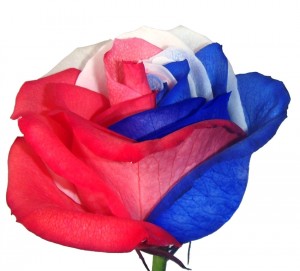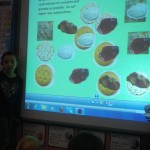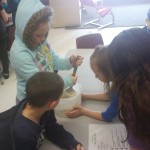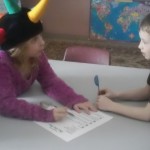April1
It is hard to believe that it is April already!!!! Where has the year gone? Here is an update of what we have been doing and learning in second grade.
International Baccalaureate
We received news on Thursday that we have been authorized as an official IB school. This is exciting news! As far as instruction and our school, we will continue to teach your children with the same diligence and effort as always meeting national Common Core Standards and Grade-level expectation for NH and MV.
Where We Are In Place and Time
Our current IB planner is about how communication technologies have changed society over time and how each invention is connected to one another.
Students are inquiring about why people communicate, How communication technologies have changed the world, and the responsibilities of communication. As we have more and more access to information and social media it is ever so important to discuss what should and and should not be shared and to consider the audience that you are sharing with. I encourage you to have these conversations with your child.
Student-Led Conferences and Portfolio Share Nights
Thank you to all the families that came to the Student-Led conferences. Students were so proud and excited about sharing their work with you and put in a lot of effort into preparing. As may of you know, some of the students were quite nervous because they knew that their learning and progress is important. After all, that is why we are here. They reflected on how they are doing and where they have made the most progress as well as areas to improve. This also gave them a chance to practice speaking and presenting to an authentic audience-you! They will be reflecting on their conference this week and be making spring goals based on your feedback (2 stars and a wish).
Dressing for the Weather
Just a friendly reminder that the weather is always changing in NH and students go outside every day. Please make sure that they have boots, mittens, and appropriate jackets for the weather on that day. Our playground can get quite muddy during the rainy springtime and the nurse does not have footwear and clothing to accommodate the whole school population. Thank you for your help.
Reading
We have been reading How to… books and learning about reading non-fiction features when following directions. Each reading group is reading a different book and working on a variety of projects. The titles are: How To Grow Crystals, Science-Just Add Salt, Making Make Pop-Ups, and Six Things to Make. Students are using questioning and backing-up-to-read strategies to better understand the directions and then following the directions. We are then reflecting on how the project or experiment turned out and how their reading comprehension was important to the overall success of the project. The students are really enthusiastic about this unit. Be sure to ask your son or daughter which book he/she is reading and what he/she is learning. (Students are learning about steps in a process, the importance of getting supplies, ingredients, and materials ready, measurement, the scientific process, crafts from around the world, ways to add creativity to other projects and presentations, as well as communication and cooperation skills).
Writing
As well as reading How to..books, students are writing their own How to pieces. We created a checklist of features that a good How to.. should have and are using it as our criteria to write their own pieces. Students are in the process of typing them on the computers, saving them to their flash drives, and will be printing them out to add pictures and diagrams to help others understand the directions. They final copies will be made into a class How to… book and each student will get a copy. The typed version without pictures will be uploaded onto their Learning Blogs. We will be writing poetry next.
Math
We have begun Unit 9 which focuses on measurement. Students are learning about the importance of using a standard unit of measurement and reviewing how to measure accurately. This week, students are going to work in teams to write directions of how to use a ruler, tape measure, yard stick correctly and teach it to the kindergarten students. Another chance to show what they know and present it to an authentic audience. Students will now if they did it well if they can teach it to a younger student.
We continue on practicing math facts with sums to 20 for automaticity (know the answer in 3 seconds or less). Please have your child practice their addition and subtraction facts at home. Your child can go to Xtramath.com for quick 3-5 minute drill practice. This skill will help your child with number sense and help when learning more complex math skills in 3r grade such as multiplication, division and using multi-digit algorithms.
To access XtraMath: 1) go to XtraMath.com and click sign in. 2) Type in teachers e-mail (mike@ mv.k12.nh.us), 3) then student name and their pin #. I wrote student’s pin numbers on the homework sheet last week and this week, though most students have already memorized theirs:) Daily practice is recommended.

















